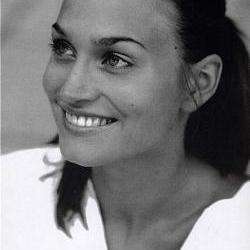The evening opened with a brief speech by Michael Schade, explaining the unconventional beginning to the concert: a cantata by Mozart dating from the year of his death, which he wrote for his fellow Freemason and friend Franz Heinrich Ziegenhagen. “Die ihr des unermesslichen Weltalls Schöpfer ehrt” is full of Masonic ideals, promoting brotherly love, wisdom, progress and an all-inclusive world religion. “Die Zufriedenheit”, a charming Mozart song on a text by Christian Felix Weiße which predates the cantata by six years, was paired with it. A set of three songs by Beethoven followed: “Die Wachtelschlag”, where the dotted motif imitating the quail’s call features prominently, then the well known “Ich liebe dich”, and finally Beethoven’s setting of Goethe’s Neue Liebe, neues Leben. Four Haydn songs from the collection of Sechs englische Kanzonetten with texts by Anne Hunter and one anonymous author rounded out the set: “The Wanderer”, “Pleasing Pain”, “Fidelity” and “Sailor’s Song”.
After the interval, the program moved firmly into the fin-de-siècle period. Three obscure but very beautiful songs by Graz native Josef Marx, “Sommerlied”, “Nocturne” and “Maienblüten” were followed by five Richard Strauss tunes including the bubbling “Frühlingsgedränge”, moving through the more atmospheric “Freundliche Vision” and “Du meines Herzens Krönelein”, and then taking a dark, beautiful turn through “Ach Lieb, ich muss nun scheiden”, “Allerseelen” and finally “Befreit”. Four of Hugo Wolf’s masterful Mörike settings ended the official program: the sprightly “Der Gärtner”, the reflective “Verborgenheit” and then the wickedly funny “Bei einer Trauung” and “Abschied”.
From the moment he stepped out on stage, Schade was engaged with the audience. He was not shy about using the stage and sought out eye contact throughout the performance. Although I do love a singer with energy, rather quickly his highly expressive manner began to feel too ostentatious, especially in this very classical context. Lieder, in particular the 18th-century offerings which dominated the first half, are intimate in nature and it felt like the performers were attempting to make much more out of them than need be. I was also unconvinced by the use of rubato that the duo employed during their classical sets. Without a structure and adherence to style, the Mozart, Beethoven and Haydn songs lost their inherent simplicity and charm and therefore much of their interest.
Moreover, the ensemble between Schade and Zeyen, either due to a lack of rehearsal time together or a fundamental difference in musical impulse, was not terribly organic. The odd miss here or there can be understood, but the feeling of tempo, movement and structure in the songs has to be something that both partners agree upon or things become awkward, which unfortunately was the case at several points last night.
That being said, both men had their fair share of beautiful moments. Zeyen established himself as a beautiful player well worth listening to with the Marx set, employing a consistently mellow, beautiful sound while negotiating remarkable passage work and his work in “Nocturne” was particularly breathtaking. He offered beautiful colors and moments throughout the Strauss set and handled the challenges of the Wolf with ease.
Likewise Schade took some wonderful risks which were well-rewarded. Dynamically, his control in pianissimo was very effective, particularly in “Die Zufriedenheit” and “Freundliche Vision” which was a high point and in general I loved some of his coloring in the more intimate numbers. What seemed a shame overall was his lack of trust in the music, or perhaps just in the audiences’ understanding of it. In future, I hope that he becomes more comfortable with simply offering the music up as it is, without bells, whistles or self-commentary.


